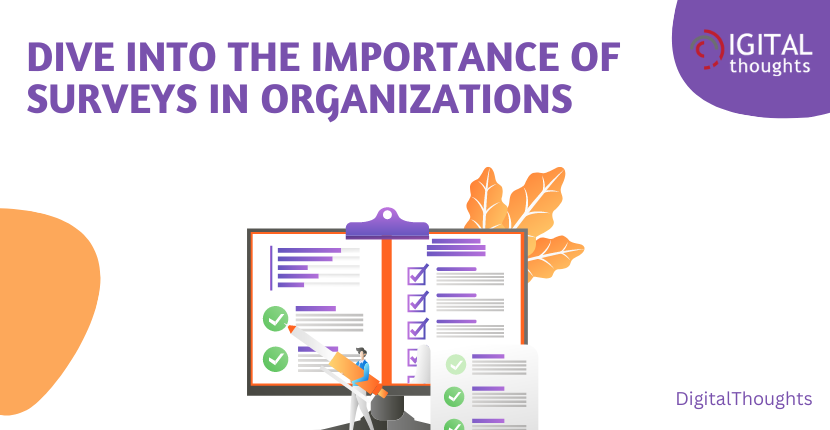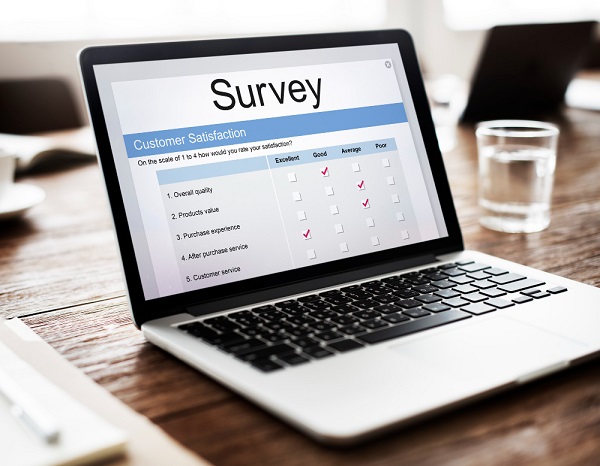Importance of Survey’s in Organization

Surveys are vital and important to all kind of services we provide to endusers/clients. Surveys are basically created with multiple questionnaire to evaluate the current situation. There are surveys with questionnaire which is used in descriptive research in which information is collected by distributing a written questionnaire among the group of people or employee, there are pros and cons of questionnaire survey listed below.
- Pros are like inexpensive, time saving, easy to conduct.
- Cons are like group of people or participant may not answer honestly, may leave the questionnaire incomplete.
There are decisions which are made on base of survey data which could strategical, logical for any product development, enhancing employee satisfaction and critical services which are providing to customer or client, hence survey data provides valuable insights for decision makers. Surveys could be customer satisfaction and employee engagement surveys which can be helpful to organization to measure the engagement level and satisfaction of their stakeholders.

There many types of Surveys can be conducted in any organization, please find below list of surveys.
a) Product Feedback survey
This kind of surveys can be roll out to understand the strength of product and actual requirement of customer to enhance the product. A list of Product modules can be listed as checkpoints to rate the features of product. This survey can be conducted once just to understand the product requirement.

b) Customer / Client Satisfaction Survey
This survey is very usual and important for all services in any organization. This survey can be roll out twice in year to understand the client satisfaction over service and product they are using. There will list of questions which will be having rating as 1-10 as decided by organization. This survey really help organization to assess and evaluate client. For example, one employee raised ticket to HR department and after resolving ticket, HR team will sent one customer satisfaction survey to employee stating please provide your score of satisfaction, hence this survey program is designed and roll out to improve and monitor the level of service we have provided.

c) Employee Satisfaction Survey
Employee survey conducted to check and understand the employee is happy with work environment and also expectation from employee about services organization providing such as transport, canteen etc. The frequency of this survey to conduct annually and share the report with management for further action if there are any. Employee survey really help to understand the current attrition rate of organization as per the behavior of survey. This survey is greatest source of information about employees have a checklist points in survey. Employee satisfaction survey aim is to gain employee trust, companion and pride for the organization.

d) Vendor / Supplier Survey
The services which organization availing from different vendors on which we roll out the survey for better services. This survey helps to evaluate every vendor on a bi-monthly basis on a performance baseline of 100%. Vendor survey frequency can be set quarterly to avail best services from vendor and provide in a way feedback.
e) Event Survey
Survey which really helpful for support function to check and get feedback from employees and group of people. For event surveys there are no frequency if Event is about product launching or important seminar conducted by company that time basically survey can be roll out to understand the actual feedback from crowd.

f) Training conducted Survey
Conducting training survey will help to grow skill and growth of the employee. There are soft skill trainings, technical training and non-technical training conducted in every organization, however once training conducted training team will share survey to collect feedback about training to improve further in next training session. There are few improvements like evaluating training quality, trainer and trainees, supporting employee growth. Training survey helps to measure effectiveness of training conducted.

